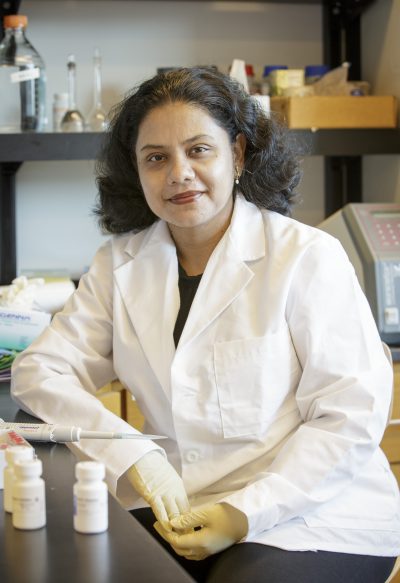
Dr. Mary Ann Lila
2022 Berries and the Skin Session Chair
Mary Ann Lila is the inaugural Director of the Plants for Human Health Institute, North Carolina State University, North Carolina Research Campus. She holds the David H. Murdock Distinguished Professorship, and is a Professor in the Department of Food, Bioprocessing, and Nutrition Sciences. Through ground-breaking, transdisciplinary discovery and outreach, her team of faculty at the Plants for Human Health Institute (PHHI) pioneers a dramatic shift in the way the American public views and uses food crops – not merely as a source of nutrients and flavorful calories, but as a powerful resource for components that protect and enhance human health. Integrated research in metabolomics, biochemistry, pharmacogenomics, molecular breeding, regenerative medicine, translational food science and nutrition and postharvest are aimed at development and promotion of mainstream fruit and vegetable produce with enhanced health benefits, and introduction of new or underappreciated crops and products from various sites throughout the globe, allowing consumers to make proactive, responsible dietary choices that benefit their own, and their families’ health.
Dr. Lila is currently a co-Director of an ambitious public-private Plant Pathways Elucidation Project (P2EP) which synergizes the talents of academia and industry. Other current research projects include a Foundation for Food and Agriculture Research initiative on ‘Closing the gap in delivery of fruit and vegetable benefits’, USDA-funded initiatives on polyphenol-protein colloids for attenuation of food allergies, on the science behind Alaska’s traditional subsistence lifestyle, and on saffron as a high value culinary and medicinal niche crop, and a Comparative Medicine Institute grant for developing the neonatal pig as a model for human food allergies.
Dr. Lila has been awarded the Paul A. Funk Scholarship Recognition Award (the premier research award in the College of ACES, University of Illinois), the Spitze Professorial Career Excellence Award, the Faculty Award for Excellence in Research, the University Scholar Award, the Amoco Award for Excellence in Undergraduate Instruction, and the Lilly Endowment Teaching Fellowship. Dr. Lila has ongoing research projects in Australia, New Zealand, and multiple countries in Europe, the Americas and Africa, and is Vice President of the Global Institute for BioExploration (GIBEX). In 1999, Dr. Lila won a Fulbright Senior Scholarship to conduct research and outreach in New Zealand, and returns to Australasia at least once/year.


 2017 Presentation Title – The Berry Flavonoid Fisetin is Protective in Multiple Animal Models of Age-Associated Neurological Disorder
2017 Presentation Title – The Berry Flavonoid Fisetin is Protective in Multiple Animal Models of Age-Associated Neurological Disorder 
 2017 Presentation Title – Blueberries: Is it a “Berry” Good Idea for Cardiovascular Health?
2017 Presentation Title – Blueberries: Is it a “Berry” Good Idea for Cardiovascular Health? 2019 Presentation Title – Are We Ready for Precision Cancer Prevention Using Black Raspberries?
2019 Presentation Title – Are We Ready for Precision Cancer Prevention Using Black Raspberries?



